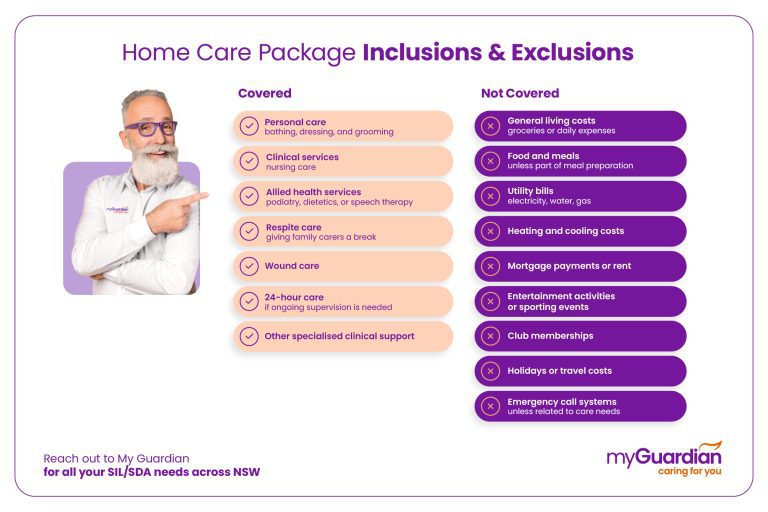Detailed walkthrough to working with home care providers under the NDIS
Detailed walkthrough to working with home care providers under the NDIS
Blog Article
Everything About Home Care Providers for Individuals With Disabilities: NDIS Registered Assistance
Home treatment solutions under the NDIS play a critical duty in sustaining people with impairments. These services are made to improve day-to-day living via tailored help, ranging from individual like movement assistance. Comprehending how to browse these choices can be complex. This introduction discovers the different elements of NDIS home care, from readily available solutions to the choice of carriers, highlighting important considerations for those seeking support. The trip toward empowered care starts right here.
Understanding the NDIS and Its Objective
The National Impairment Insurance System (NDIS) acts as a transformative structure made to offer support and solutions for people with impairments. Developed to enhance the lifestyle and warranty fair access to vital sources, the NDIS encourages individuals by supplying customized plans tailored to their special requirements. It intends to foster freedom, making it possible for individuals to seek their individual objectives and aspirations.Through a structured approach, the NDIS allocates financing for different assistances, including education, employment aid, and community participation. This all-encompassing plan not only focuses on immediate care however additionally highlights long-term developing end results. By promoting option and control, the NDIS motivates individuals to select their favored provider, guaranteeing that care lines up with their preferences and worths. Ultimately, the NDIS represents a substantial dedication to boosting the lives of individuals with impairments, cultivating inclusivity, and building a much more encouraging society.
Kinds Of Home Treatment Services Available
Different kinds of home treatment solutions satisfy people with disabilities, largely concentrating on individual care assistance and break care alternatives. Personal care aid gives important support with daily activities, while reprieve treatment offers momentary relief for primary caretakers. Recognizing these services is important for guaranteeing the well-being of both people with specials needs and their family members.
Personal Care Aid
While navigating every day life can provide obstacles for individuals with handicaps, personal treatment assistance supplies vital support customized to their one-of-a-kind needs. This kind of home care solution includes a series of tasks developed to advertise freedom and enhance high quality of life. Individual care assistants help with everyday tasks such as bathing, clothing, grooming, and toileting, ensuring people preserve individual health and convenience. They might likewise aid with dish prep work, drug administration, and wheelchair assistance. By providing personalized treatment, these specialists encourage people to engage even more totally in their social tasks and everyday routines. In general, individual treatment help plays a substantial duty in promoting dignity and autonomy for those with disabilities, allowing them to prosper in their home atmosphere.

Reprieve Treatment Options
Reprieve care acts as a vital resource for families and caretakers of individuals with disabilities, providing temporary remedy for the demands of day-to-day caregiving. This kind of solution can take different forms, consisting of in-home respite care, where qualified experts visit the home to help with care tasks. Alternatively, families may decide for facility-based break treatment, where individuals obtain care in a specialized environment, enabling caregivers to take a break. In addition, some companies provide emergency situation reprieve solutions for unanticipated circumstances. These choices not just aid ease caretaker stress and anxiety but also promote the well-being of individuals with impairments by using them new experiences and social communication. In general, break treatment plays a critical role in supporting both caregivers and those they look after.

How to Accessibility NDIS Home Treatment Providers
Accessing NDIS home treatment services includes comprehending the eligibility standards stated by the National Handicap Insurance Policy Plan. Individuals need to browse an organized application procedure to protect the needed support tailored to their requirements. This area will certainly clarify both the eligibility requirements and the actions associated with requesting services.
Eligibility Requirements Discussed
To receive NDIS home treatment solutions, people have to fulfill particular qualification requirements that evaluate their scenarios and demands. Applicants should be aged in between 7 and 65 years and have a substantial and long-term impairment that impacts their capacity to perform everyday activities. Furthermore, they should be an Australian resident, a permanent local, or hold a Protected Special Classification Visa. The NDIS calls for evidence of the impairment, commonly through clinical evaluations or reports. Moreover, individuals need to demonstrate that they require assistance to join economic and social life. These criteria ensure that services are guided towards those that truly require aid, promoting self-reliance and improved quality of life for people with impairments.
Application Process Steps
Can I Select My Own Assistance Employees Via NDIS?
The private made inquiries whether they could choose their own support workers under the NDIS framework. Usually, participants have the adaptability to select assistance workers, promoting individualized treatment that lines up with their specific needs and preferences.
What Occurs if My Needs Change After Getting Assistance?
If a person's demands change after receiving assistance, they should connect these modifications to their solution company. Modifications can be made to the treatment strategy, making sure that the assistance remains pertinent and efficient see here now for their circumstances.

Exist Restricts on The Amount Of Hours of Care I Can Obtain?
The individual asked about possible limitations on the variety of treatment hours got. Normally, such limits might exist based upon specific policies or moneying setups, stressing the relevance of assessing standards and arrangements on a regular basis.
Can I Make Use Of NDIS Funding for Home Adjustments?
The inquiry of using financing for home alterations emerges regularly. Typically, individuals may make use of NDIS funding for needed adjustments to their homes, making sure accessibility and safety and security, contingent upon meeting particular qualification criteria and guidelines.
Just how Do I Deal with Issues Concerning My Home Treatment Providers?
To attend to complaints about home treatment services, people should first record their issues. They can interact directly with their solution supplier, looking for resolution, or intensify the problem to appropriate oversight bodies if needed. Home care services under the NDIS play an essential duty in supporting people with disabilities. Numerous types of home treatment services cater to people with handicaps, primarily focusing on personal care help and respite treatment alternatives. support at home. Individual treatment help provides essential support with day-to-day tasks, while reprieve treatment supplies short-lived relief for primary caregivers. Families may choose for facility-based break care, where people obtain treatment in a customized atmosphere, enabling caregivers to take a break. Just how can family members successfully take care of the economic elements of home treatment solutions for individuals with disabilities?
Report this page